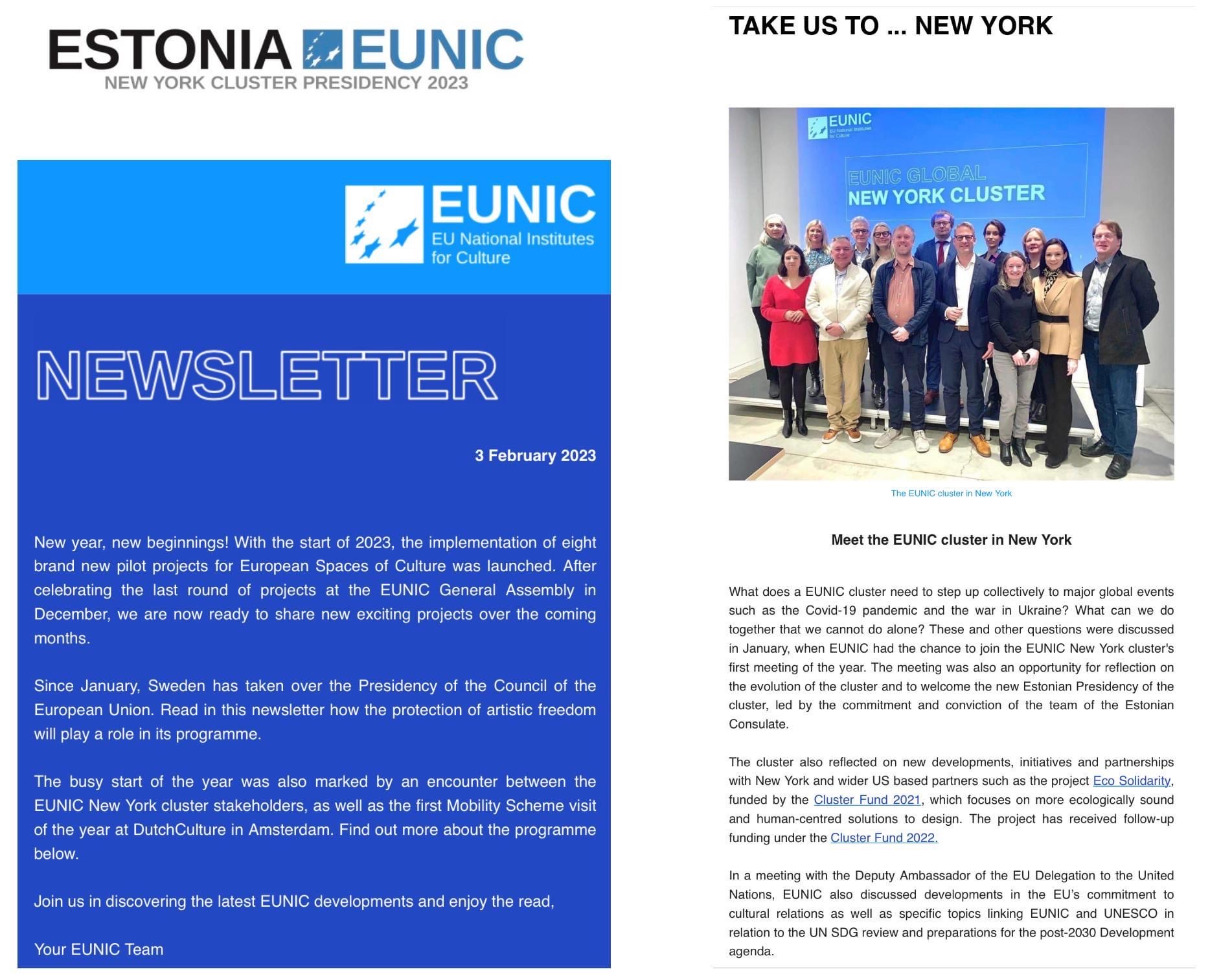
Through culture, EUNIC strives to build trust and understanding between the people of Europe and the wider world. We work to make culture count in international relations.
Values and Principles
EUNIC’s work is based on the principles of cultural relations. We aim to build fair partnerships by practising mutual listening and learning and engaging in dialogue, co-creation, and joint capacity building. EUNIC’s understanding of culture includes the arts, creative industries, development cooperation, digitalisation, education, gender, heritage, human rights, language and multilingualism, social inclusion, sports, sustainability, tourism, youth, and others.Purposes and Strategy
The purposes of EUNIC are defined in the Statutes as follows:
- to promote cultural diversity and understanding
- to strengthen international dialogue and cultural cooperation
- to be a partner of the EU in defining and implementing EU cultural policy
- to advocate for the value of cultural relations and, as part of this, argue for a strong and independent voice for the cultural sector
- to conduct research and share best practices
On 4 June 2020, EUNIC adopted its new Strategic Framework 2020-2024. EUNIC's three objectives are:
Clusters
EUNIC members join together in 132 clusters in 102 countries worldwide. Clusters are the network's branches, established where at least three EUNIC members are represented. Clusters engage in cultural relations, co-creating activities with partner organisations. This map shows the global presence of EUNIC.
Colleagues working in EUNIC Clusters find key documents and guidelines in the EUNIC Resource Centre.
EUNIC members engage in cultural and related activities beyond their national borders. They are national institutes for culture or other organisations acting for or on behalf of a national entity, based in EU Member States. EUNIC unites both cultural institutes that operate at arm’s length from national governments and national bodies and ministries. EUNIC currently counts 38 members based in all EU Member States and associated countries.
